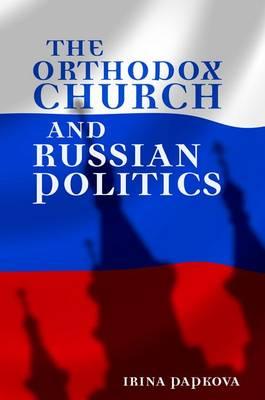Overview
This in-depth case study examines the Russian Orthodox Church's influence on federal-level policy in the Russian Federation since the fall of communism. By far more comprehensive than competing works, The Orthodox Church and Russian Politics is based on interviews, close readings of documents--including official state and ecclesiastical publications--and survey work conducted by the author. The analysis balances the Church as an institutional political actor with the government's response to Church demands. Papkova ultimately concludes that the reciprocal relationship between the Church and state is far weaker and less politically important than Western analysts usually believe. Papkova traces the Church's relative failure in mobilizing parishioners, influencing political parties, and lobbying the state, citing the 1997 law limiting religious freedoms as its only significant political win. She attributes much of this weakness to the informal division of the Church into liberal, traditionalist, and fundamentalist factions, which prevents it from presenting a unified front. Providing a fresh insight into the role of the Church in Post-Soviet Russia, the book speaks across disciplines to political science, sociology, anthropology, history, and religious studies.
Full Product Details
Author: Irina Papkova (Professor of International Relations and European Studies, Professor of International Relations and European Studies, Central European University in Budapest)
Publisher: Oxford University Press Inc
Imprint: Oxford University Press Inc
Dimensions:
Width: 23.10cm
, Height: 2.50cm
, Length: 15.50cm
Weight: 0.612kg
ISBN: 9780199791149
ISBN 10: 0199791147
Pages: 265
Publication Date: 09 June 2011
Audience:
College/higher education
,
Professional and scholarly
,
Tertiary & Higher Education
,
Professional & Vocational
Format: Hardback
Publisher's Status: Active
Availability: In Print

This item will be ordered in for you from one of our suppliers. Upon receipt, we will promptly dispatch it out to you. For in store availability, please contact us.
Reviews
<br> The book provides a valuable assessment of how Russian presidents Yeltsin, Putin, and Medvedev view the role of the Orthodox Church. Also, Papkova skillfully covers the relationship between the Orthodox Church and such important factors in Russian politics as the Communist and the Liberal Democratic parties. This book definitely helps to understand modern Russia. --CHOICE<p><br> Papkova writes from the perspective of a political scientist, but her research will also be useful to social scientists, anthropologists, students of religion, and historians. In fact, I found her book so riveting I wished she had interviewed Russian army personnel with the same questionnaire...She has already demonstrated that she is a sound scholar and fine analyst. I have no doubt that The Orthodox Church and Russian Politics will be but the first in a long line of informative monographs in a distinguished career. --Slavic Review<p><br>
<br> The book provides a valuable assessment of how Russian presidents Yeltsin, Putin, and Medvedev view the role of the Orthodox Church. Also, Papkova skillfully covers the relationship between the Orthodox Church and such important factors in Russian politics as the Communist and the Liberal Democratic parties. This book definitely helps to understand modern Russia. --CHOICE<p><br> Papkova writes from the perspective of a political scientist, but her research will also be useful to social scientists, anthropologists, students of religion, and historians. In fact, I found her book so riveting I wished she had interviewed Russian army personnel with the same questionnaire...She has already demonstrated that she is a sound scholar and fine analyst. I have no doubt that The Orthodox Church and Russian Politics will be but the first in a long line of informative monographs in a distinguished career. --Slavic Review<p><br> The Orthodox Church and Russian Politics manages to elucidate an extraordinary amount of material in just over 200 pages of text and presents a powerful, well formulated argument with widespread implications. One could not ask for more in a book of its kind. Papkova has provided what will surely be a controversial and lasting work for Russian Studies, the study of religion and politics, and the study of religion in general. By disrupting traditional tropes about the political stance and influence of the Russian Orthodox Church, this book will be a constant source for future scholarly engagement and elaboration. --Religion<p><br>
Author Information
Professor of International Relations and European Studies at the Central European University in Budapest.




